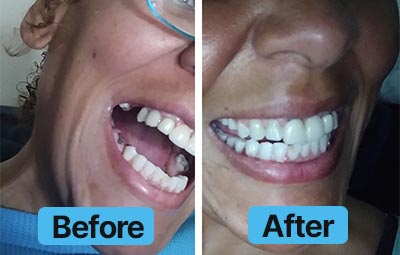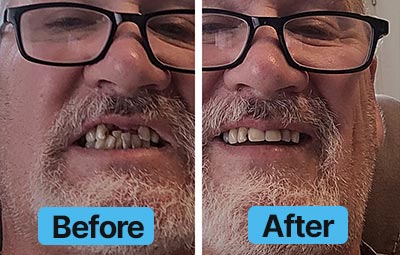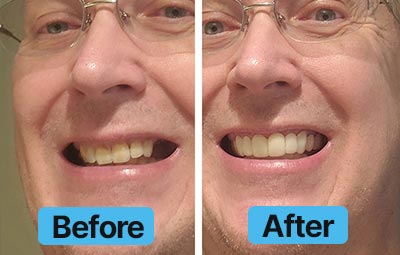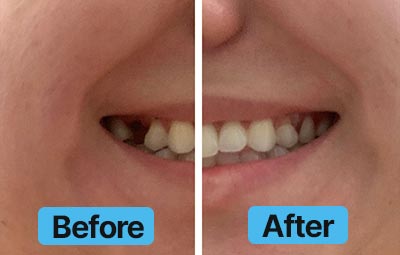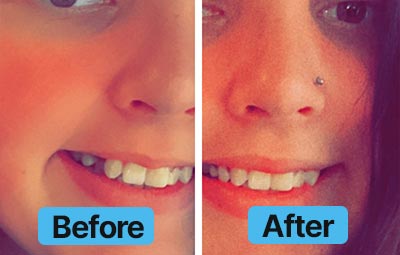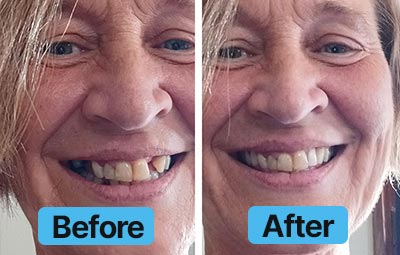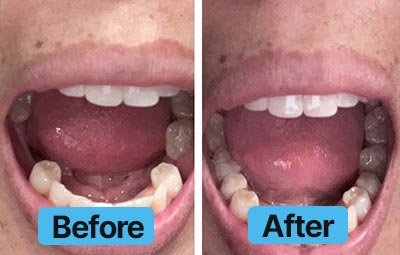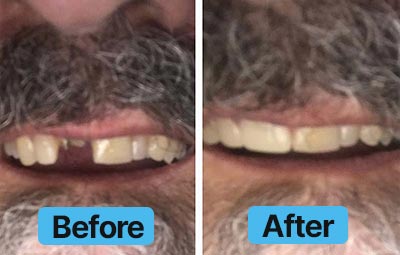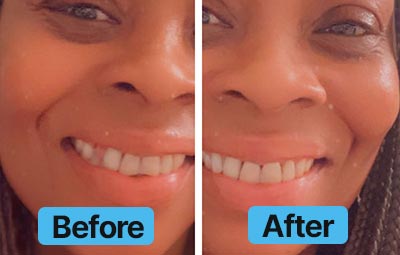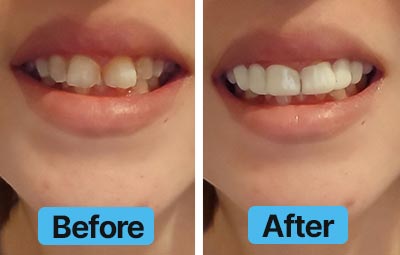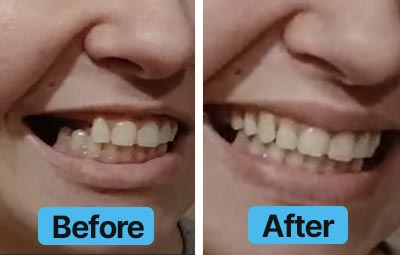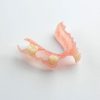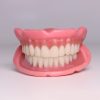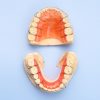Our teeth are meant to last a lifetime, but in reality, many of us will face dental issues that require major repair or replacement.
Dental prosthetics are artificial replacements for natural teeth. This includes things like full or partial dentures, dental bridges, veneers, and implants, all of which can restore your ability to chew, speak, and smile confidently when your natural teeth are failing.
Tooth loss and dental damage are more common than you might think, with over 120 million Americans missing at least one tooth, and 36 million having no natural teeth left at all.
With an aging population, the number of people needing prosthetic teeth like dentures is expected to grow in the coming decades.
So, how do you know if you might be a candidate for a dental prosthetic?
Oftentimes, your dentist will be the first to tell you. But there are also signs and situations you can notice yourself. Here are five signs you might need dental prosthetics.
5 Signs You Might Need Dental Prosthetics
1. You Have One or More Missing Teeth
Missing one or more teeth will be the most obvious sign that you might need dental prosthetics.
Missing teeth can happen for all sorts of reasons, like decay, injury, gum disease, etc.
If you have lost teeth for any reason, you should strongly consider dental prosthetics to replace them, since they can lead to a whole bunch of problems if you ignore it.
Adjacent teeth may move or tilt into the empty space (causing misalignment). You might find it harder to bite and chew your favorite foods. Your speech can be affected by missing teeth (for example, missing front teeth can make it hard to pronounce certain sounds).
Beyond that, missing teeth can cause the jawbone in those areas to deteriorate over time, since the tooth’s roots are no longer there to stimulate bone growth. This bone loss may eventually lead to changes in your face, such as a sunken cheek or a collapsed mouth look with wrinkles around the mouth.
Replacing missing teeth with a prosthetic, like a bridge, implant, or denture, can prevent these issues. 90% of people who suffer complete tooth loss (edentulism) get dentures to restore function and appearance.
2. Your Teeth are Severely Damaged or Decayed
Not all problems can be fixed with a simple filling or crown. If you have multiple teeth that are badly decayed, cracked, or worn down, you might be approaching the point where extractions and dental prosthetics are the best option.
Signs include constant severe tooth pain, large pieces of teeth breaking off, or teeth that are decayed to the gumline.
Sometimes, root canals or crowns can address extensive decay, but if the damage is too deep, the tooth may not be salvageable.
So rather than living with a chronic toothache or infection, you can extract that hopeless tooth and replace it with a prosthetic tooth (such as an implant or part of a denture).
3. Your Gums are Unhealthy and Your Teeth Feel Loose
Do your teeth wobble when you push on them? Are your gums frequently swollen, tender, or bleeding?
Loose teeth and chronic gum problems can be signs of advanced periodontal (gum) disease, which is the leading cause of adult tooth loss.
In the early stages, gum disease (gingivitis) causes bleeding and puffiness. But as it progresses to periodontitis, it can destroy the supporting bone around teeth, causing teeth to loosen or drift out of position.
If multiple teeth are loose or your dentist has told you that you have bone loss around your teeth, you are at high risk of losing those teeth.
4. You Have Difficulty Chewing
Maybe you haven’t lost any teeth yet, but you know things aren’t quite right.
If you find yourself avoiding certain foods, for example, only chewing on one side because some teeth hurt, or skipping crunchy foods and sticking to soft ones, it may be a sign that your teeth are not functional and need intervention.
Our teeth are supposed to efficiently break down food. When they don’t, it leads to poor nutrition and digestive issues.
Significant tooth loss can also cause “nutritional changes” and even contribute to health issues like obesity and diabetes, since people without functional teeth often gravitate to softer, carbohydrate-heavy diets.
5. You Have a Hard Time Speaking With Your Current Teeth
Likewise, difficulty speaking clearly can signal dental problems.
If you have large gaps or many badly shaped teeth, you might struggle with pronunciation or find yourself slurring words.
Do you whistle or spit when saying “s” sounds, or feel your tongue getting “stuck” in gaps? These are indicators that your dental condition is affecting speech.
It’s Time to Try Dental Prosthetics
If you recognize these signs, it may be time to explore dental prosthetics.
Modern solutions like full dentures to replace all teeth and partial dentures to fill gaps can restore chewing ability, speech, and your beautiful smile.
Millions rely on dental prosthetics daily, why not you too?
Ready to restore your smile? Explore comfortable, natural-looking partial and full dentures from Dental Labs Direct and take the first step toward better teeth.
 30 DAY warranty on all custom-made products | 1,000+ 5 Star ★★★★★ Reviews
30 DAY warranty on all custom-made products | 1,000+ 5 Star ★★★★★ Reviews

